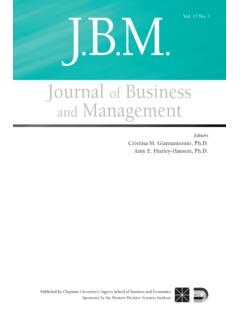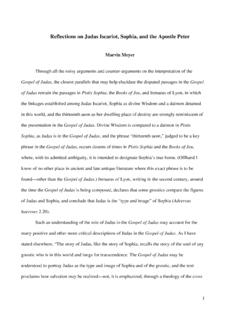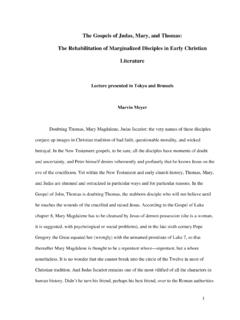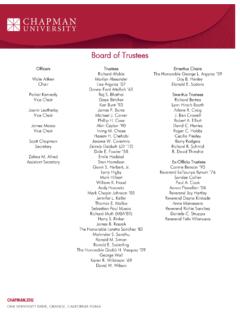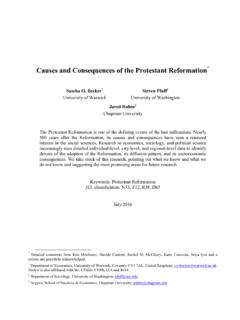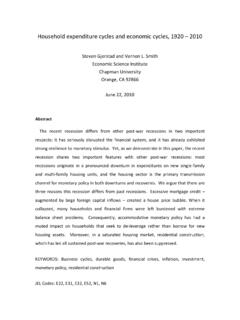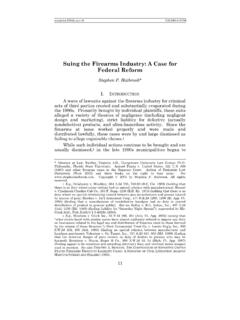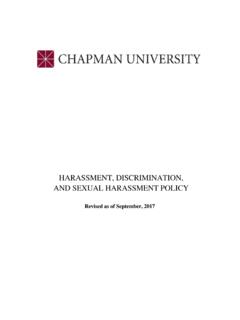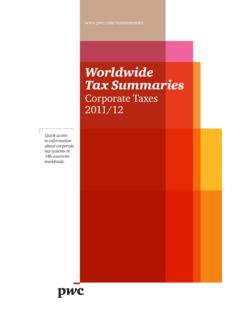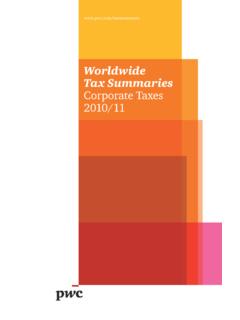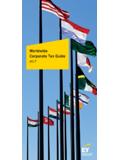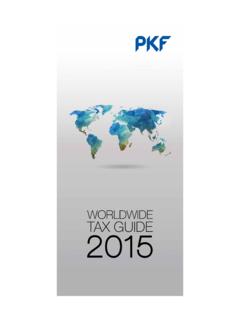Transcription of Taking a Byte out of International Tax Evasion: Combating ...
1 37526 chp_19-1 Sheet No. 160 Side A 03/15/2016 15:53:0437526 chp_19-1 Sheet No. 160 Side A 03/15/2016 15:53:04 CMYKDo Not Delete 2/14/2016 11:55 AM 307 Taking a Byte out of International Tax Evasion: Combating Base Erosion and Profit Shifting Rachel J. Greenberg*INTRODUCTIONB enjamin Franklin said that nothing is certain except death and taxes. However, this popular slogan must not ring true; in today s economy, some of the world s largest multinational companies have found loopholes in the tax system and manage to evade paying billions of dollars worth of taxes in various Obviously, to the common folk, the ability of companies to evade this surety of life is troublesome.
2 International efforts, led by the Organisation for Economic Co-operation and Development (OECD), have been undertaken in an attempt to combat the issue of base erosion and profit shifting (BEPS). Erosion of the tax base occurs when multinational companies shift profits from high-tax jurisdictions to low-tax jurisdictions, so companies pay significantly lower taxes than they otherwise The OECD enacted its Action Plan in 2013,3 and a number of countries have been working to implement facets of the plan since that time.
3 While the Action Plan is an important attempt to create social justice by allowing governments to regain corporate taxes generated by multinational entities, this will require ameliorating actions by * , Chapman University Dale E. Fowler School of Law, May 2016; , University of California, Los Angeles, June 2011. I wish to express my gratitude to Professor Stephanie Lascelles for her assistance and feedback, as well as the entirety of Chapman Law Review for their comments and advice throughout the editing process.
4 I would like to dedicate this Comment to my family, and thank them for their unwavering love and support in all endeavors I pursue. 1 Jim Edwards, Here s How Much Money Apple Avoids Paying in Taxes by Pretending It s Based in Ireland, BUSINESSINSIDER (June 11, 2014, 12:59 PM), [ ] (stating that between 2011 and 2012, Apple was able to avoid paying $ billion in taxes). 2 About Base Erosion and Profit Shifting, OECD, [ ]. 3 OECD, ACTIONPLAN ON BASEEROSION AND PROFITSHIFTING (2013), d&accname=guest&checksum=024E863CD25458C 99B042F1F03A46A16 [hereinafter ACTIONPLAN].
5 37526 chp_19-1 Sheet No. 160 Side B 03/15/2016 15:53:0437526 chp_19-1 Sheet No. 160 Side B 03/15/2016 15:53:04 CMYKDo Not Delete 2/14/2016 11:55 AM 308 Chapman Law Review [Vol. 19:1all involved parties and cooperative rather than competitive behavior. However, until the goals of the Action Plan align with those of the individual countries affected by BEPS, it is unlikely that the Action Plan will accomplish its stated objectives. This Comment will provide a background of the problem of BEPS, from the time of its inception through the present day.]
6 It will then explore the economic problems of selected countries that represent the spectrum of the parties involved in addressing this problem and certain unilateral solutions they are undertaking. Specifically, it will examine the United States as a high-tax jurisdiction, which is the home of most of the offending companies, the United Kingdom as a relatively high-tax jurisdiction, which is a European Union member, India as a developing source country, and Bermuda as a tax haven.
7 The United States and the United Kingdom are OECD members, India is a non-member observer country, and Bermuda has no OECD Finally, this Comment will focus on several recommendations which could be implemented multilaterally to accomplish the goals of the OECD s Action Plan. order to have a comprehensive understanding of the issue of BEPS and make suggestions which could reasonably be integrated into the International tax regime, it is necessary to consider the evolution of the dilemma and the actions that have already been attempted.
8 This Part will cover the formation of the OECD, a focused history of the issue of BEPS, and a factual overview of the OECD s recently published Action Plan. A. Formation of the OECD In the early 1900s, most businesses were located within the borders of a single Although firms occasionally operated across national borders, company wealth and property were generally bundled within a single country where the firm was subject to Each country created its own domestic laws regarding taxation of As industrialization continued, companies began to do business in multiple countries, and, eventually, multinational corporations developed.
9 Questions arose as to how to allocate profits to different countries so each 4 About the OECD: Members and Partners, OECD, membersandpartners/ [ ]. 5 Steven A. Bank, The Globalization of Corporate Tax Reform, 40 , 1307 (2013).6 ACTIONPLAN,supra note 3, at 7, 9. 37526 chp_19-1 Sheet No. 161 Side A 03/15/2016 15:53:0437526 chp_19-1 Sheet No. 161 Side A 03/15/2016 15:53:04 CMYKDo Not Delete 2/14/2016 11:55 AM 2016] Taking a Byte out of International Tax Evasion 309 country could share in taxing the company.
10 However, sometimes the independent rules for different countries conflicted, causing friction, and potential double taxation, defined as taxation of the same income in both countries in which the company does In the 1920s, the League of Nations recognized that double taxation would slow economic growth and recovery, and International tax laws were designed to limit this friction and to support global economic International co-operation has resulted in shared principles and a network of thousands of bilateral tax treaties that are based on common standards and that therefore generally result in the prevention of double taxation on profits from cross-border activities.
